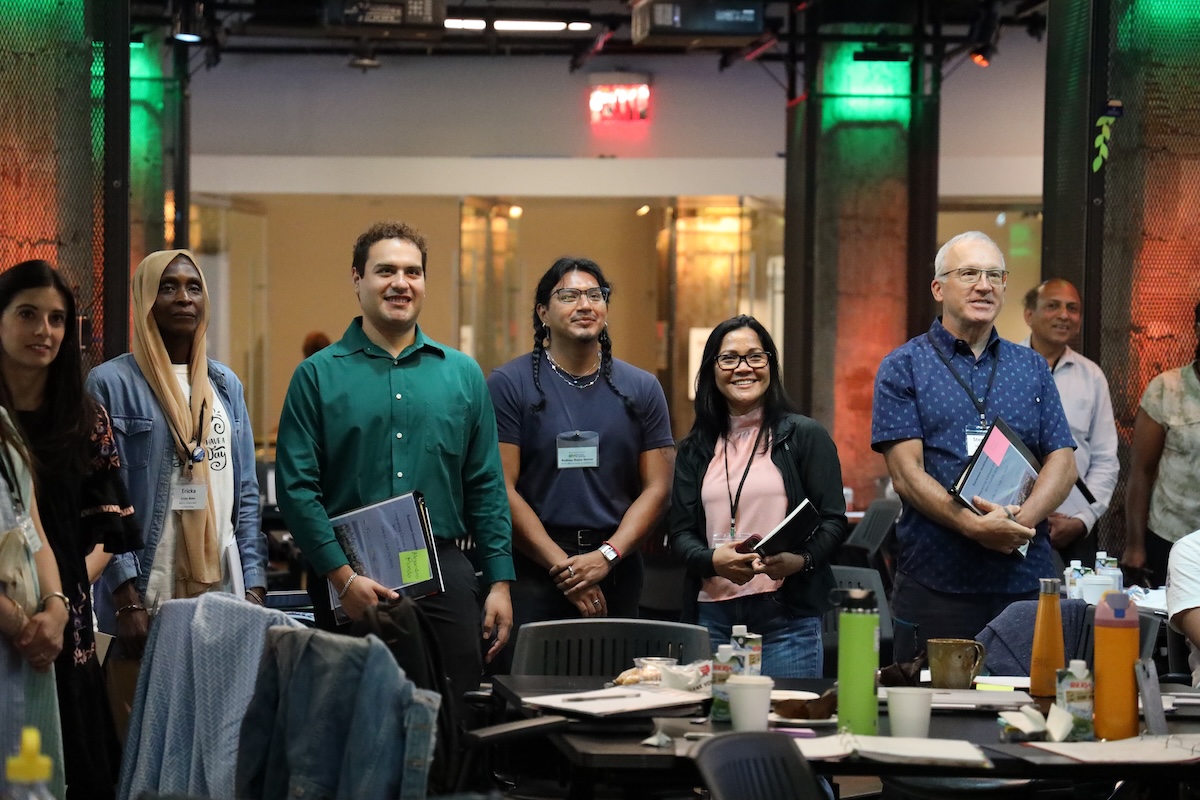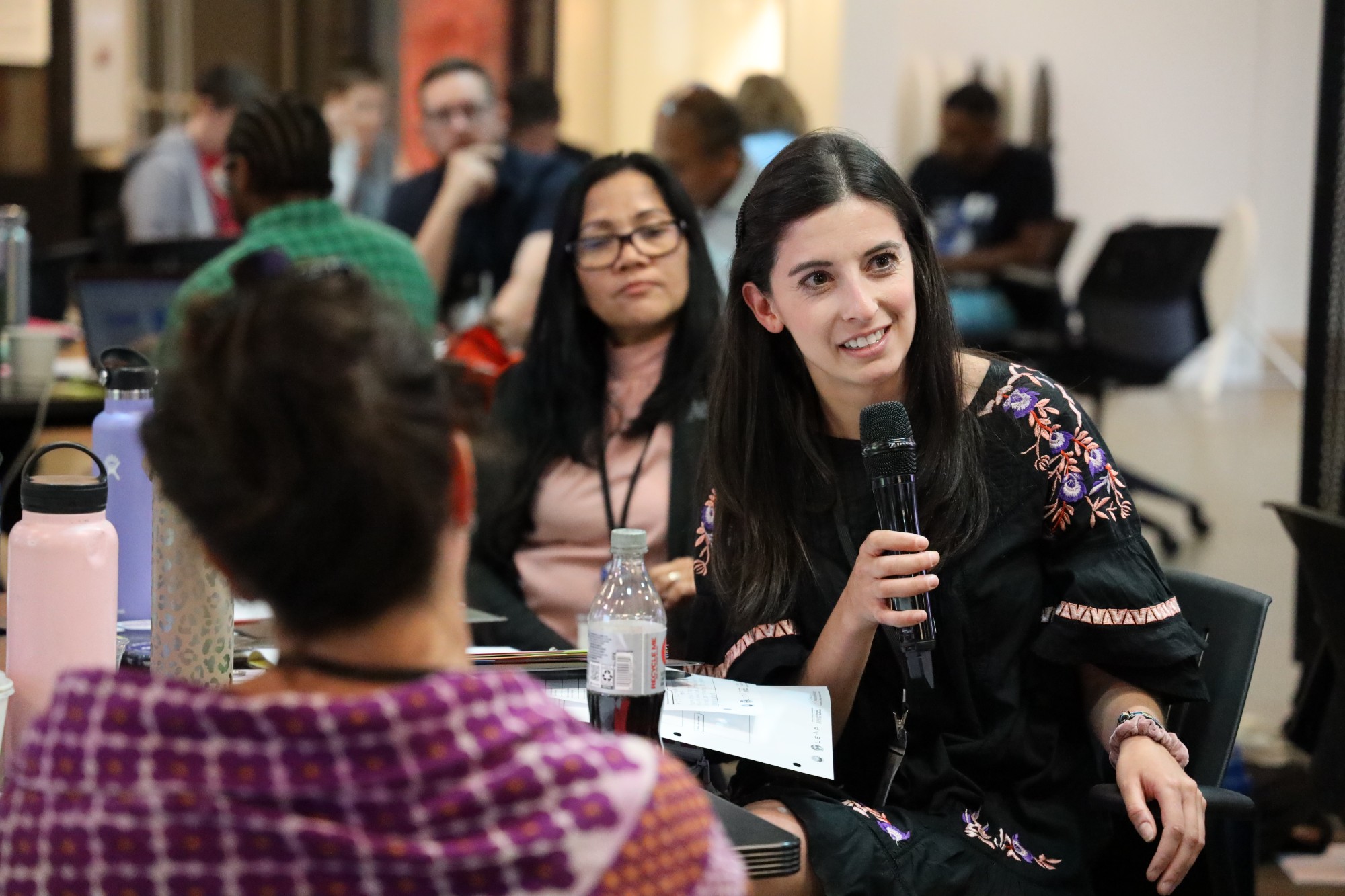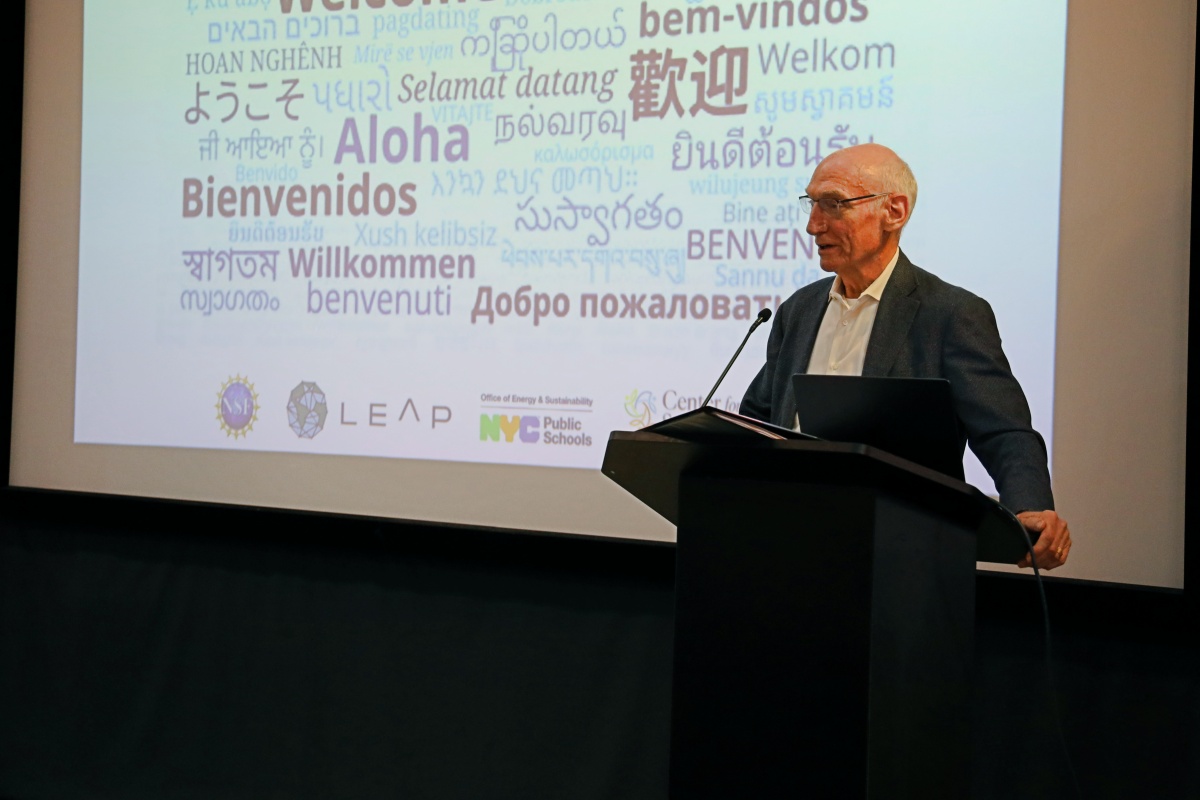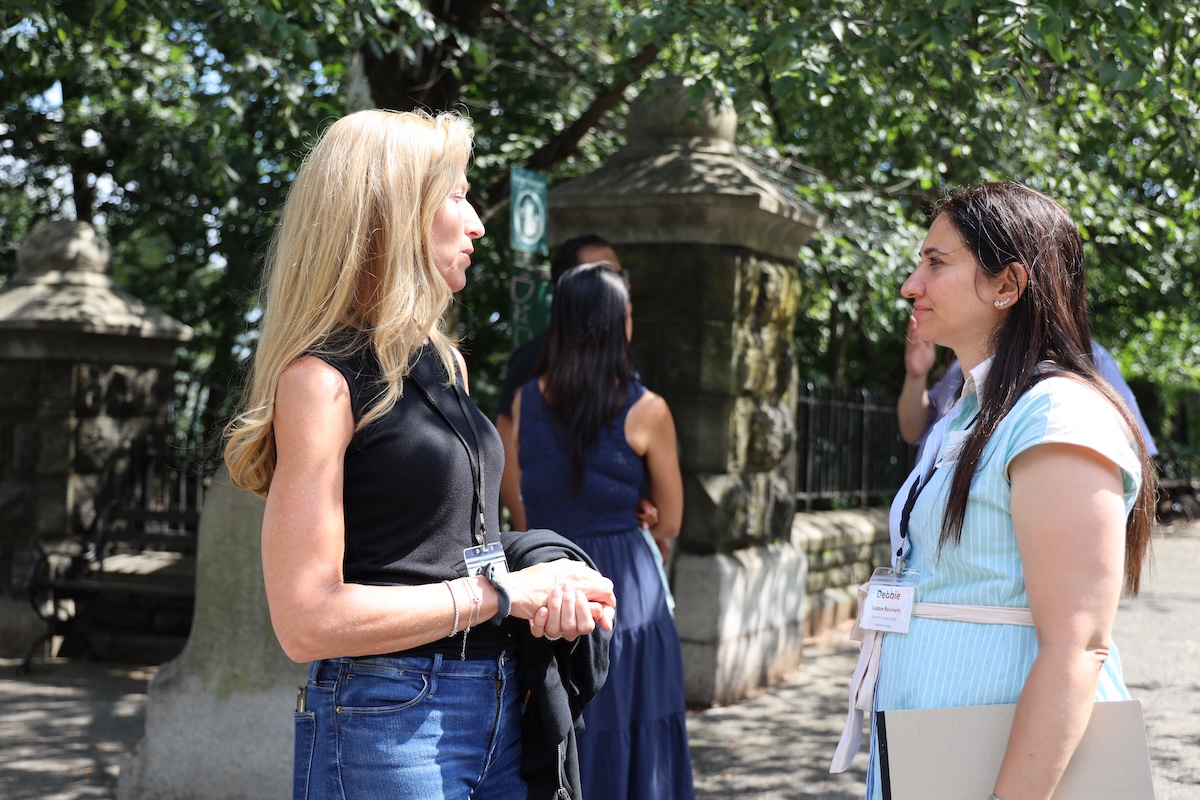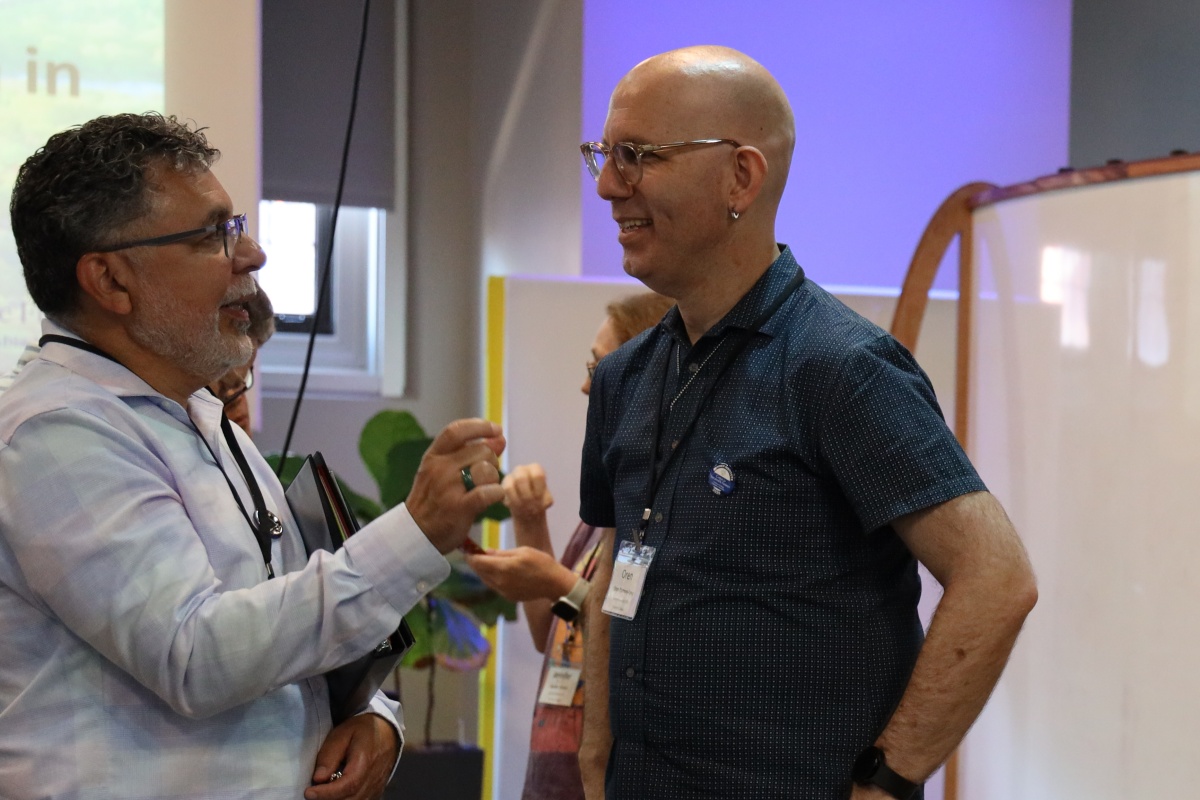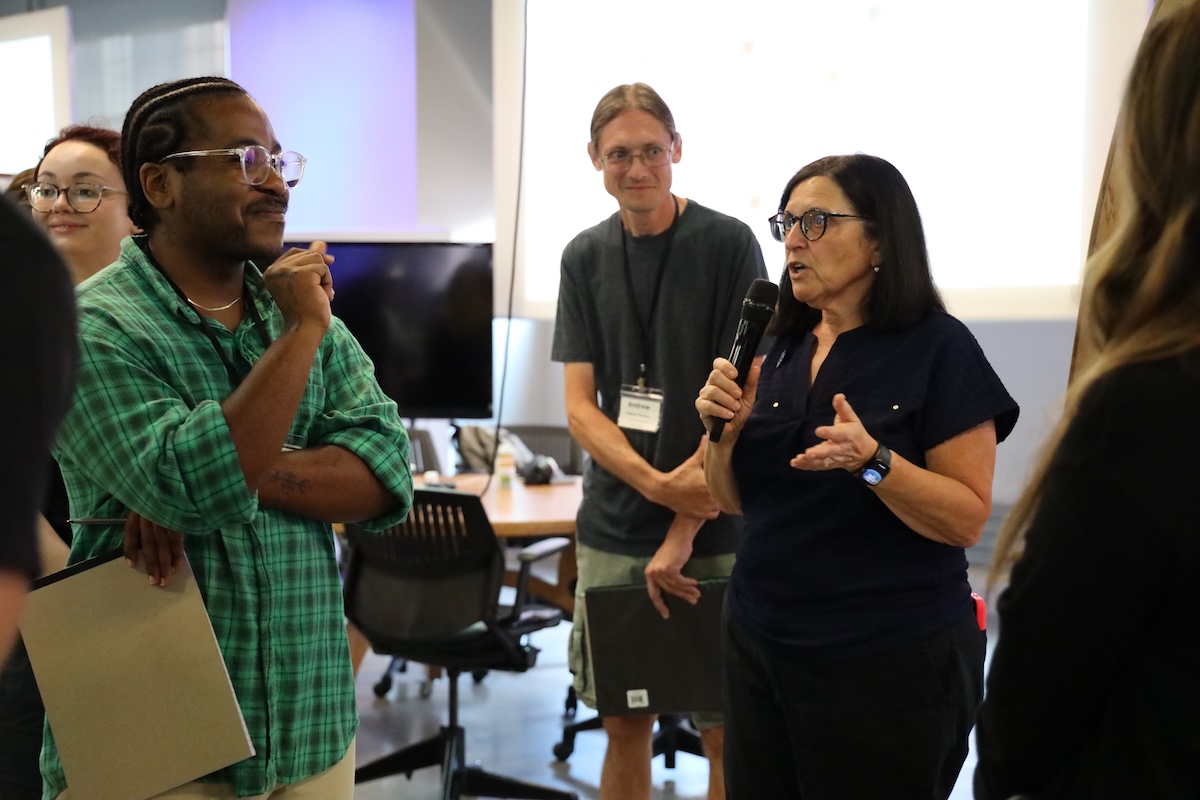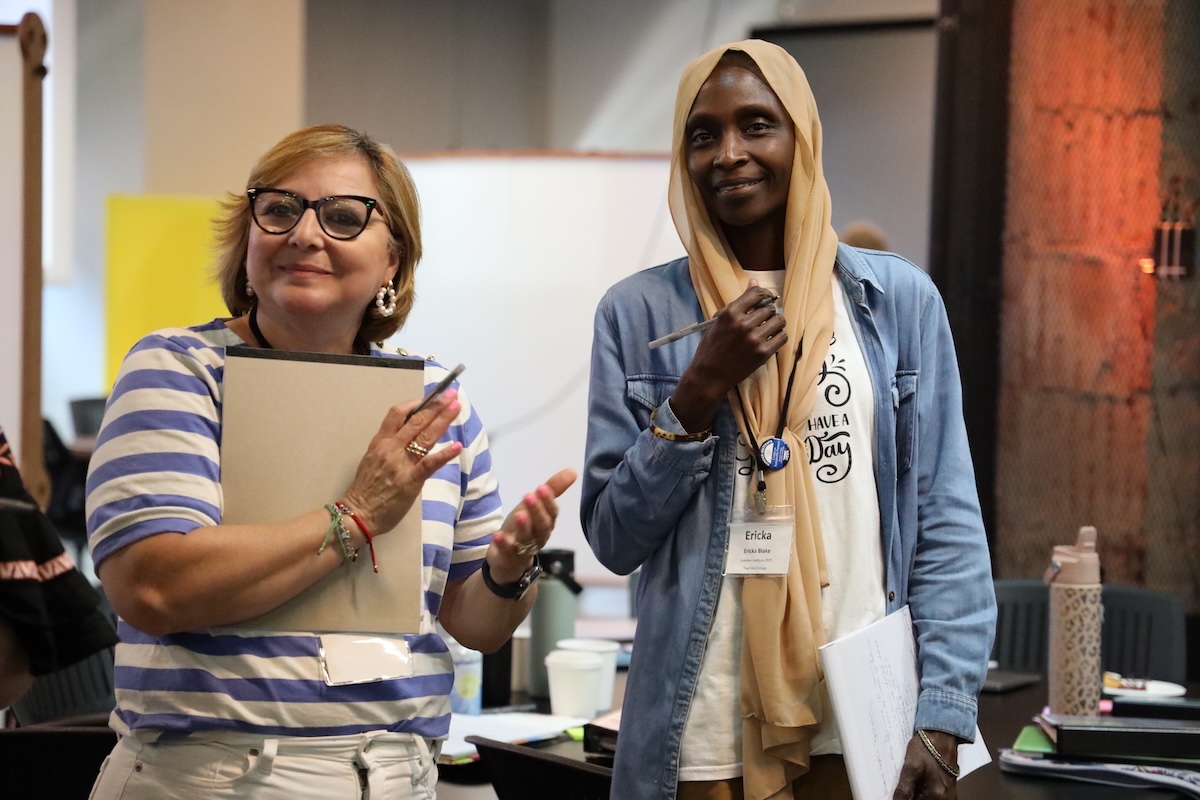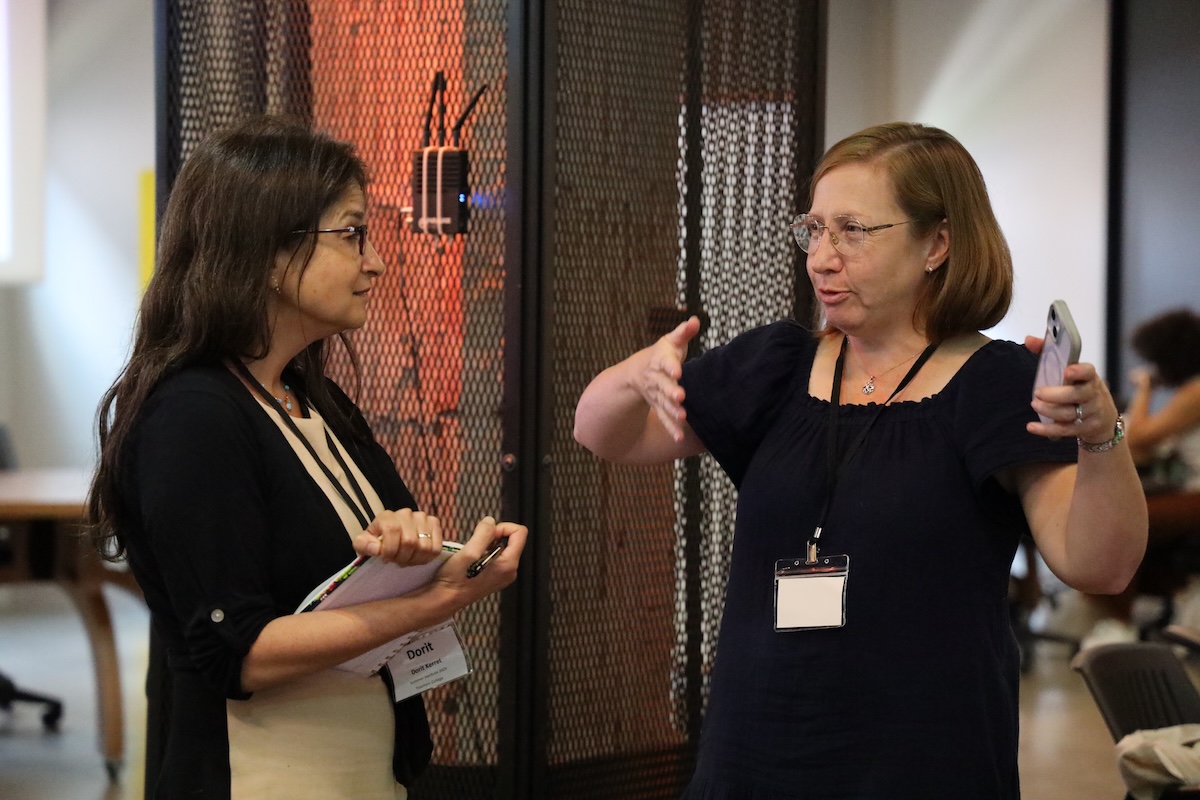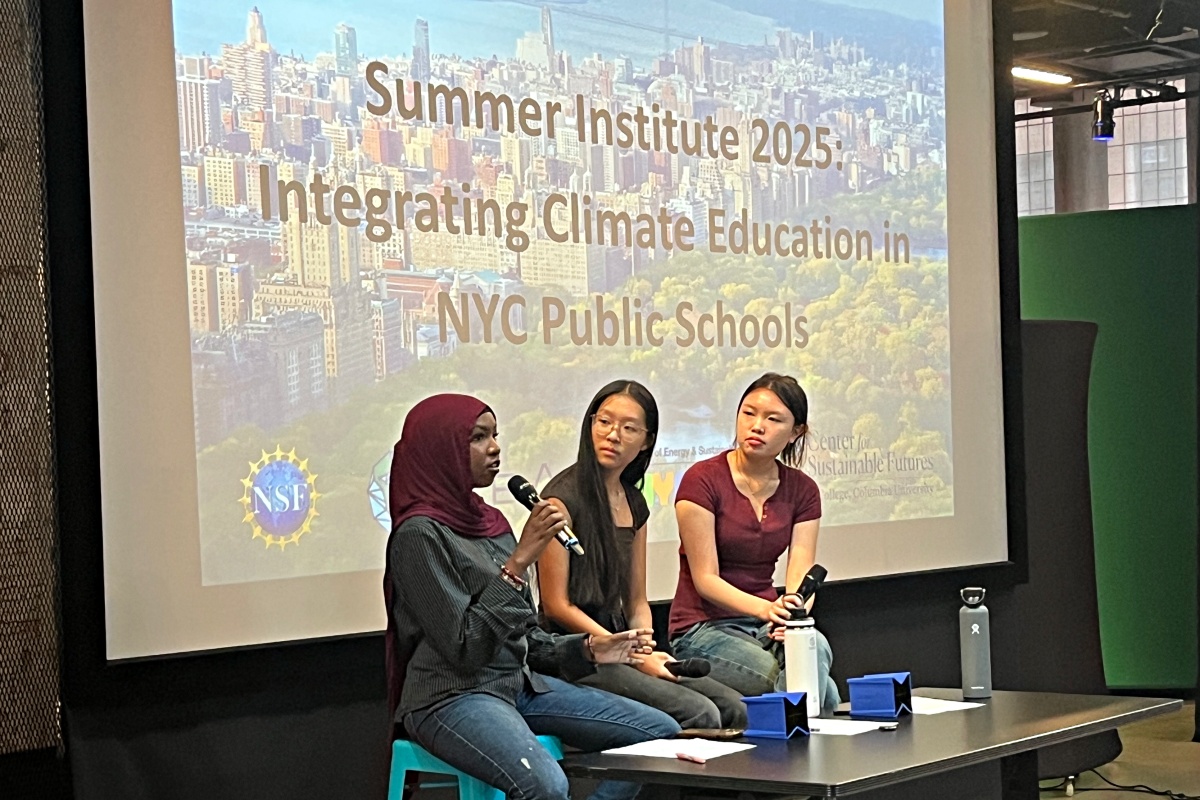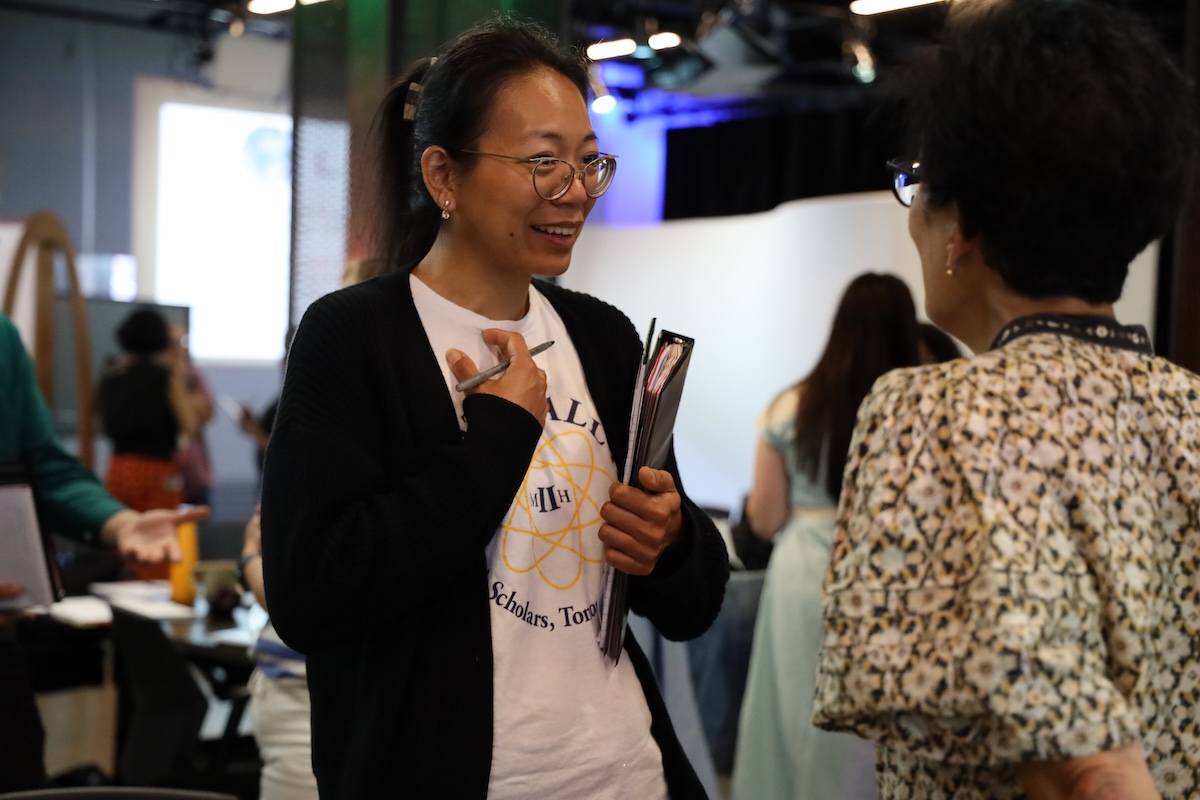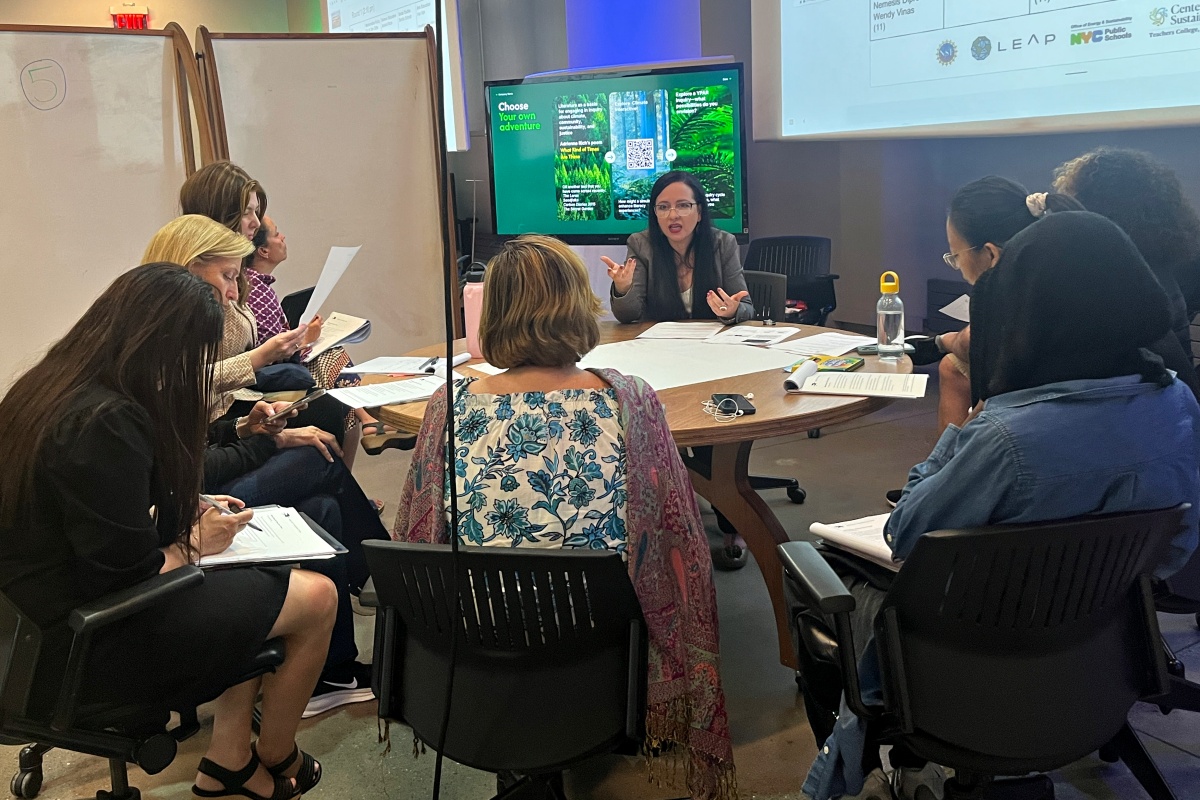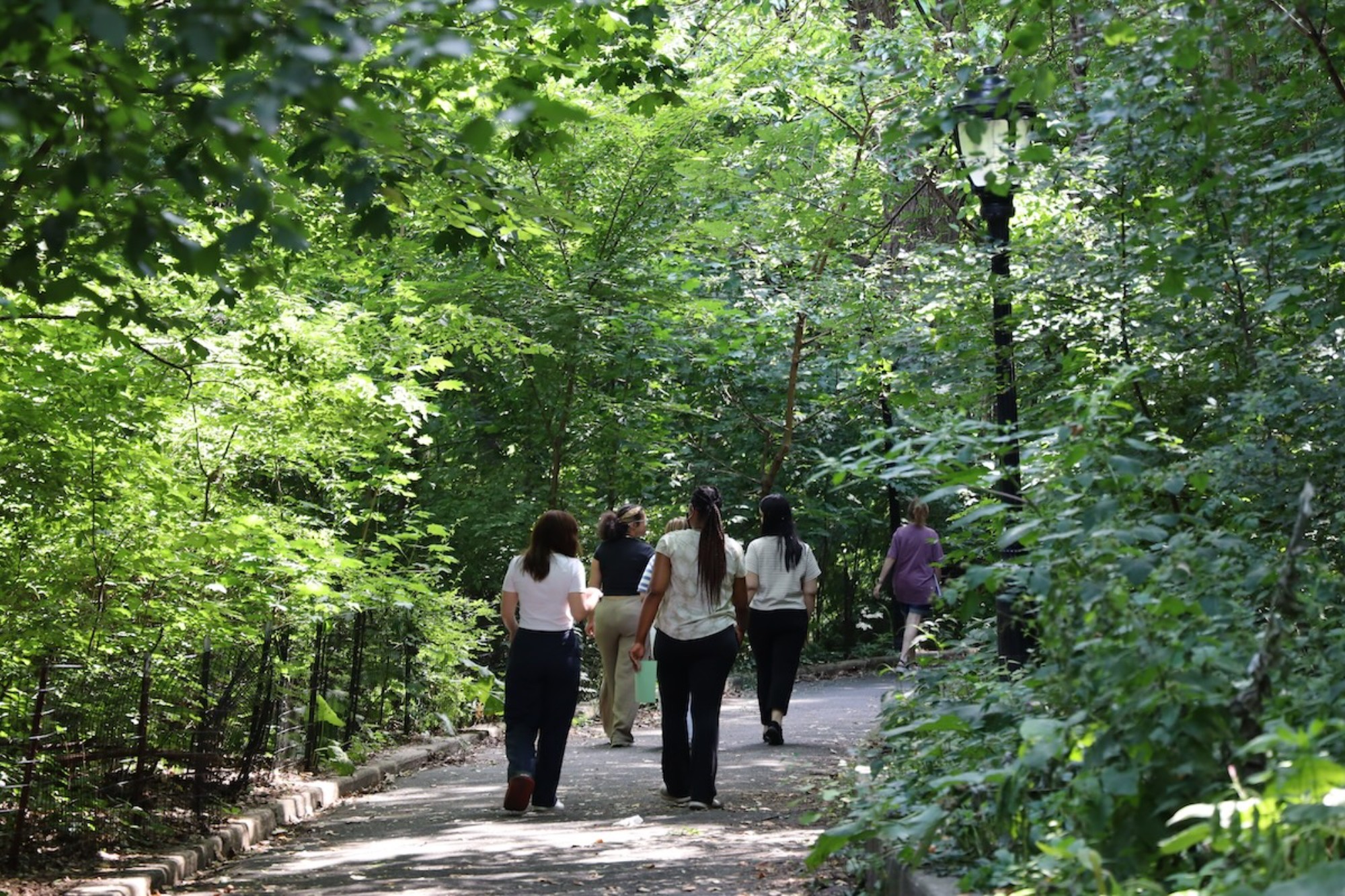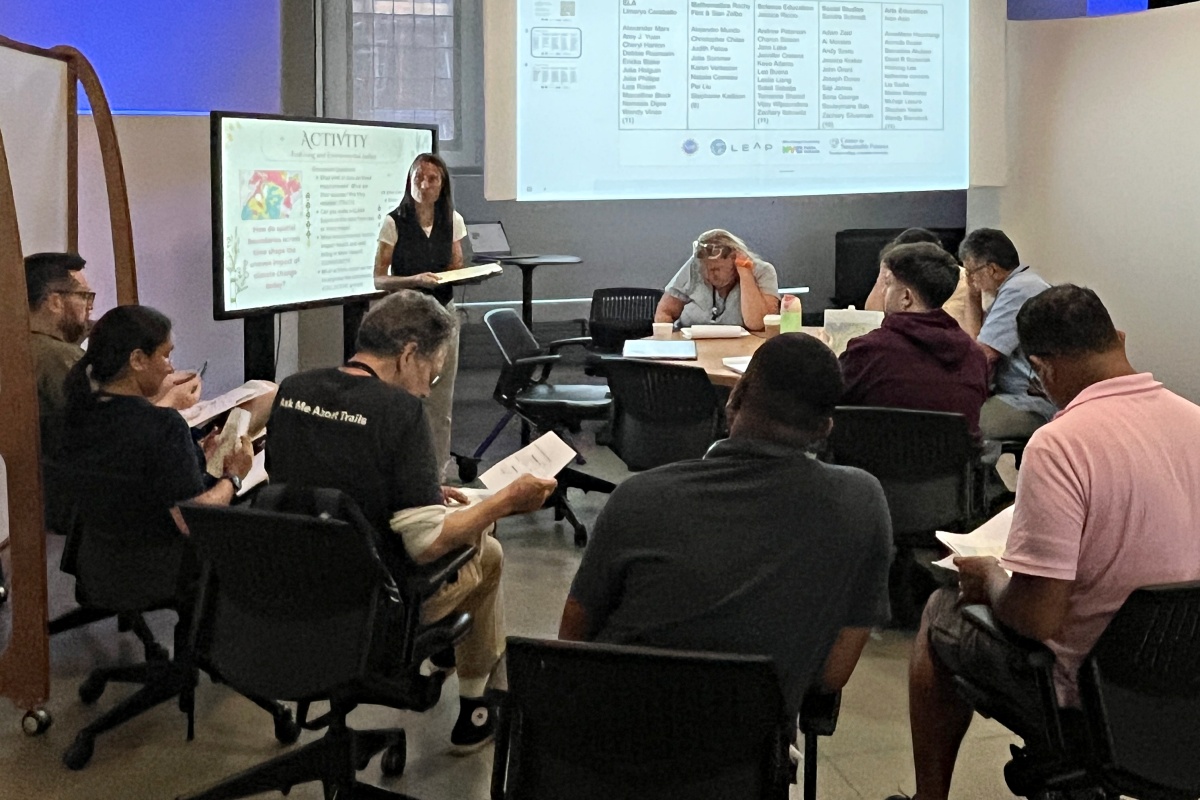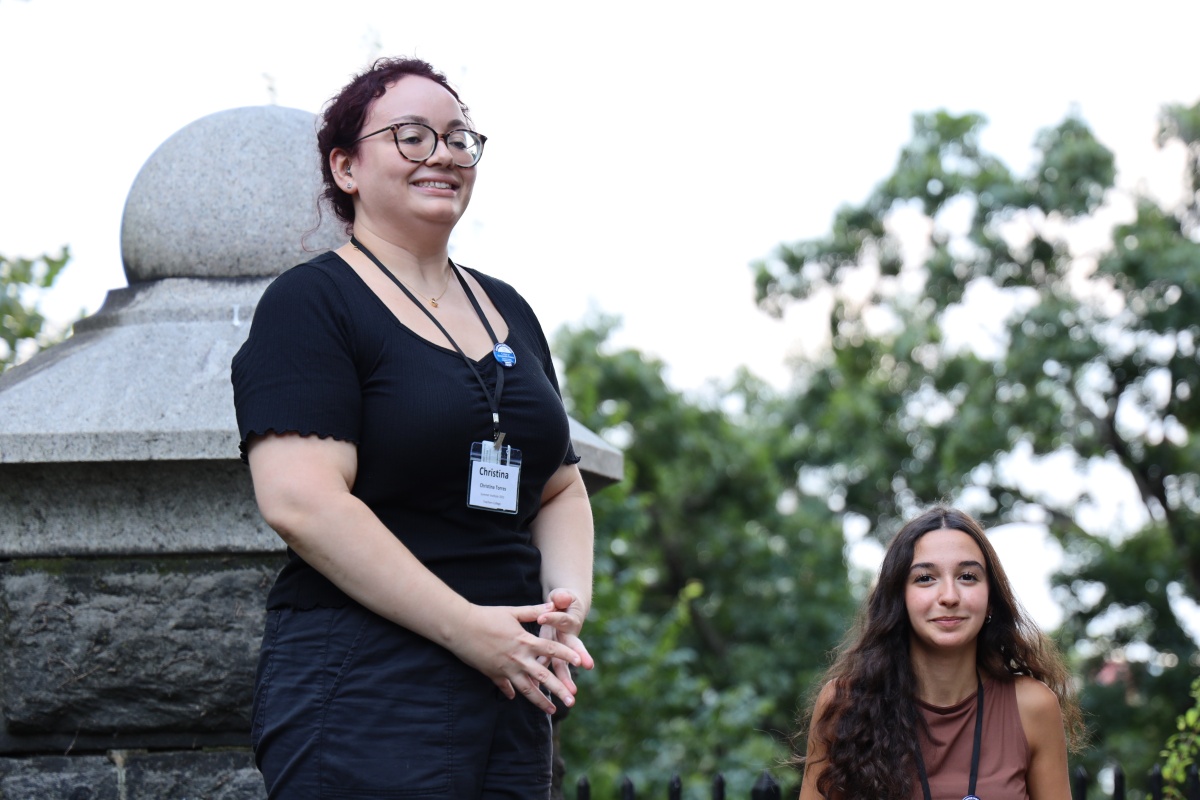With record-breaking heat, destructive flooding and other growing hazards from climate change, the need for climate change education is becoming more critical than ever. The importance of providing educators, students and the broader public with the information and tools to understand and adapt to climate change fueled a gathering of 45 high school teachers from across New York City at the Smith Learning Theater at Teachers College last month for the 2025 Summer Institute: Integrating Climate Education in NYC Public Schools.
As in prior years, educators spent a week building a community and gaining knowledge on climate change education fundamentals, student-centered pedagogy and interdisciplinary lesson planning. A partnership between TC’s Center for Sustainable Futures, the LEAP (Learning the Earth with Artificial Intelligence and Physics) Center at Columbia University, and the Office of Energy and Sustainability in New York City Public Schools (NYCPS), the Institute was created as part of a $25 million National Science Foundation grant in 2021. This year’s programming was the third in a four-year series of Institutes for elementary, middle and high school educators.
“One of the things that we are really proud of in this Summer Institute, [is] that it's not only for science teachers,” said Oren Pizmony-Levy, Associate Professor of International and Comparative Education and Director of the Center for Sustainable Futures. “We want to make sure that every teacher is using her or his perspective or discipline to offer something new about climate change.”
This interdisciplinary approach drew teachers from across subjects including science, English language arts, math and social science, and programming focused on pedagogy and practice helped teachers think about and devise lesson plans that could consider ways to evaluate and address the realities of climate change in a variety of real-world scenarios. The initiative is emblematic of the Public Good Initiative, launched by President Thomas Bailey last year, which coalesces scholarship and practice across the four key areas of sustainability, teacher education, digital innovation, and mental health and wellness as TC faculty and students collaborate with communities and leaders to tackle some of the most critical issues of our time.
“We recognize the value of K-12 schools, teachers, students and their local communities in helping advance solutions for the challenge of climate change and sustainability,” said President Bailey in his welcome remarks. “Together, you will form a learning community as you incorporate the very real challenge of climate change into your classrooms, across a whole range of subject areas.” President Bailey also announced the College’s brand new online masters program for Sustainability in Education. The first-of-its-kind offering will begin accepting applications September 2025.
One of the central goals of the CSF Summer Institute is to empower educators to teach climate change with confidence and to do so, organizers focused first on building community before delving into the science. A robust network means that educators can leverage the knowledge of their colleagues to integrate climate change into rigid curricula. “It takes a village to approach climate change education. We see time and time again through our research that one of the important resources we are providing teachers is [a] network,” said TC doctoral candidate Christina Torres, Research Associate and Coordinator for the Center for Sustainable Futures.
What Educators Are Saying
To give educators a deeper understanding of youth attitudes toward climate change, the Center for Sustainable Futures brought in three student activists from the NYCPS Office of Energy and Sustainability Youth Leadership Council for an in-depth discussion on climate education in schools. Elevating student voices can spur teachers into action, according to recent research from the Center for Sustainable Futures. “The moment you tell teachers that students are interested [in climate change education] they immediately say, ‘I need to be responsive to this need and indeed they find ways to integrate climate change into their curriculum,’” said Pizmony-Levy.
What Students Are Saying

